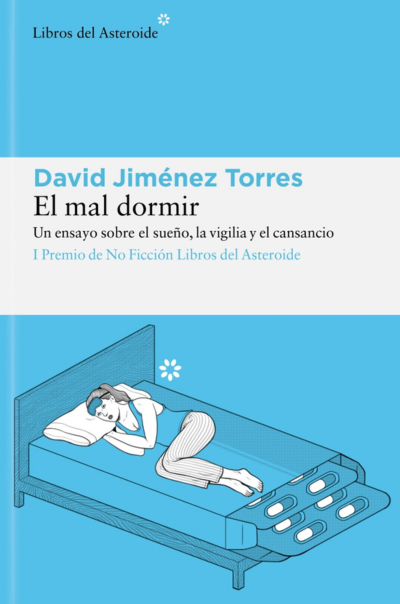Last Saturday, a remarkable event took place in Pamplona, as a result of the collaboration of Civism with Pompaelo, an association that I have the honour of presiding. Its protagonist was Inma Alcolea, Corporal of the Mossos d’Esquadra and an example of what can happen when an Administration becomes the armed arm (literally) of an ideology or a party, instead of maintaining the neutrality and impartiality that both the Constitution (article 103, among others) and the Statute dictate.
Corporal Alcolea’s case is bloody and widely documented, mainly because he has had the courage and opportunity to defend himself in court. That, and the early court rulings in her favor, prove that her allegations are more than just opinions. But this isn’t the only case. The catalan administration is full of examples of behaviour that wouldn’t pass the filter of the law, as we see every time we try. So many cases show that these are not accidental. This Administration has been colonized by and ideology and the parties that support it. And the same can be said of others, less spectacular but just as pernicious.
But putting aside for a moment the specific case of corporal Alcolea, her partner and the other non-separatist Catalan officials, we move on to focus on the principle itself.
Spain, after 40 years of democracy, has evolved quite a lot. Rules that seemed to be clear have been twisted, while others have never been clear. The political parties have been expanding their influence in such a way that this has led to a loss of popular confidence, reflected in the 15-M and the growing weight of populism.
Let us leave aside the “advisory fabric”, the growing layer of staff intervening between public officials and civil servants. There is also the proliferation of posts, directorates and cabinets, the most extreme case of which is now to be found in the Regional Government of Navarre, with more senior posts that communities ten times larger. The critical problem doesn’t lie in the cost of these abuses, nut in the infestation of the civil service fabric, from which impartiality and neutrality are expected and demanded.
An example is the appointment of the judiciary. Something that, at the beginning, depended essentially on the judges themselves, came to be in the hands of Congress, a change that was authorized by the Constitution under the condition that posts wouldn’t be distributed “by party quotas”, which is exactly what is done nowadays. and it has consequences.
Another example is the appointment of managers in companies in which the State (including the municipalities), public bodies and independent authorities have an interest. Each change of government brings with it a wave of resignations and dismissals that are too reminiscent of those in the 19th century. On the other hand, if appointments and dismissals were made for the right reasons, (capacity and results) the changes would be much smaller. And the risk of inefficiency and clientelism would also.
Every change of government brings a wave of resignations and dismissals that are too reminiscent of the 19th century
But the problem goes much further with “trusted” and “freely appointed” positions within the Administration (from ADG down). Two criteria that conflict with the “merit and ability” that
should normally govern their appointments. Here the abuse should be more limited, because it’s a requirement to have a civil servant position and minimum quantifications already in place, but in fact it means that politicians can appoint anyone who meets them, when, to discuss that qualification, a tribunal would be required. And so there is the case of a Pamplona chief of Police (appointed under Asirón) without qualification, as the Administrative Court of Navarre ruled years later.
The choice based on “criteria of confidence” extends the discretion, specially as the requirements for each position are not well regulated. TO date, even the criteria that have been given importance in validating the suitability of a candidate aren’t always documented. And there are cases, such as the promotion procedures within the Mossos, which include “oral, not witness and no recording” evidence that allows the evaluator to be arbitrary and deprives the evaluated person of his/her defense. The principle of the “competition of merits” disappears from the map. And the right to access public functions and positions under equal conditions (Article 23.3 of the Constitution), too.
We could expand on this, but doctors have the Church. What is noteworthy is that the parties that have governed Spain (and its autonomous communities) for 40 years have had in their hands the opportunity to correct these abuses, and the have not done so. Abuses without which the effectiveness of the Administration of all would have been much greater, while the possibility of creating clientelist networks and of protecting corruption would have been, on the contrary, much less.
There are two practices that deserve a separate chapter and multiply the problem exponentially. One, the abuse of command interlocutions (in more than one autonomous police force, we are talking about more than 50% of these charges in that situation). This allows us to bypass the restrictions that guarantee neutrality, since it places those commands completely at the mercy of their political bosses, which eliminates the protections of public service, and determines the behaviour of their subordinates, or at least the treatment they receive. This is, obviously, very worrying, and the consequences are seen daily in Catalonia, when the law comes into conflict with the wishes of political leaders.
The other practice that aggravates the problem is the use of arbitrary limitations to reduce the number of candidates. The draft of the new Basque statute aims to restrict the exercise of public service to speakers of Basque, which means attacking the constitutional rights of 80% of the people of Alava (and 90% if the people of Navarre, and 100% of the rest of the Spanish population), and at the same time creating a clientele network, by favouring a group that happens to owe them the job because of a lack of competence. The new statute may not be successful, but similar rules already impose disproportionate civil servant, and violate the rights of (for example) doctors in the Balearic or Valencian Community. The Basque case is already terminal, with a colonization of the educational equipment that has managed to exclude non-Basque-speaking teachers from the system.
The reaction of right-wing populism is to say that the autonomies must be done away with. But that’s confusing the victim with the parasite. As in the case of the savings banks, the problem doesn’t lie in an (in itself neutral) idea, but in the way it is executed. When the criteria of merit and ability are removed and the administrations, which must be neutral, are systematically put at the service of the parties for 40 years, the cease to function properly. The less these political groups care about the equal rights of their citizens, the more so.
We won’t achieve the levels of good governance, efficiency, honesty and good democratic functioning that we all desire without making a serious effort to defend that neutrality, that merit and that cacity. As in added benefit, when parties don’t gain undue advantage from controlling more competencies, the incentives to arbitrarily request them will be reduced.






